Understanding fractions Easy Math Worksheets for Ages 6-8
20 filtered results
-
From - To
Unlock the world of fractions with our "Understanding Fractions Easy Math Worksheets for Ages 6-8". Designed to make learning fun and interactive, these worksheets guide young learners through the basics of fractions with engaging exercises and colorful illustrations. Dive into exercises that teach halves, thirds, and fourths, fostering a solid math foundation. Perfect for classroom or home use, our worksheets help children develop critical thinking and problem-solving skills. Empower your child with the confidence to tackle more complex math concepts. Download now and watch them transform into fraction whizzes while enjoying the learning journey!
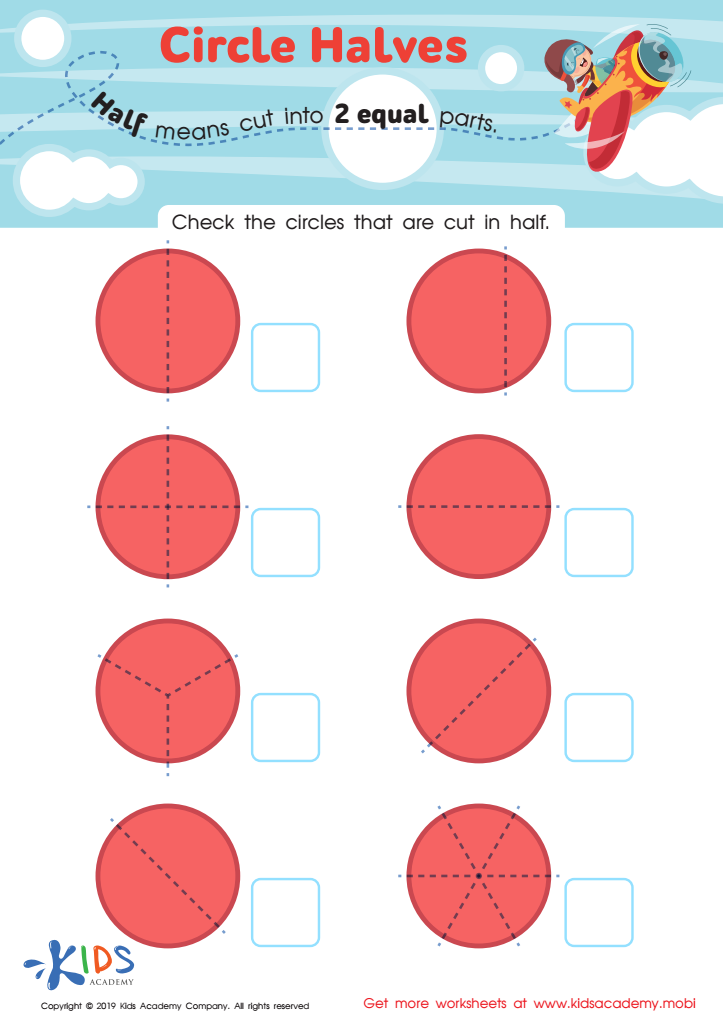

Circle Halves Worksheet
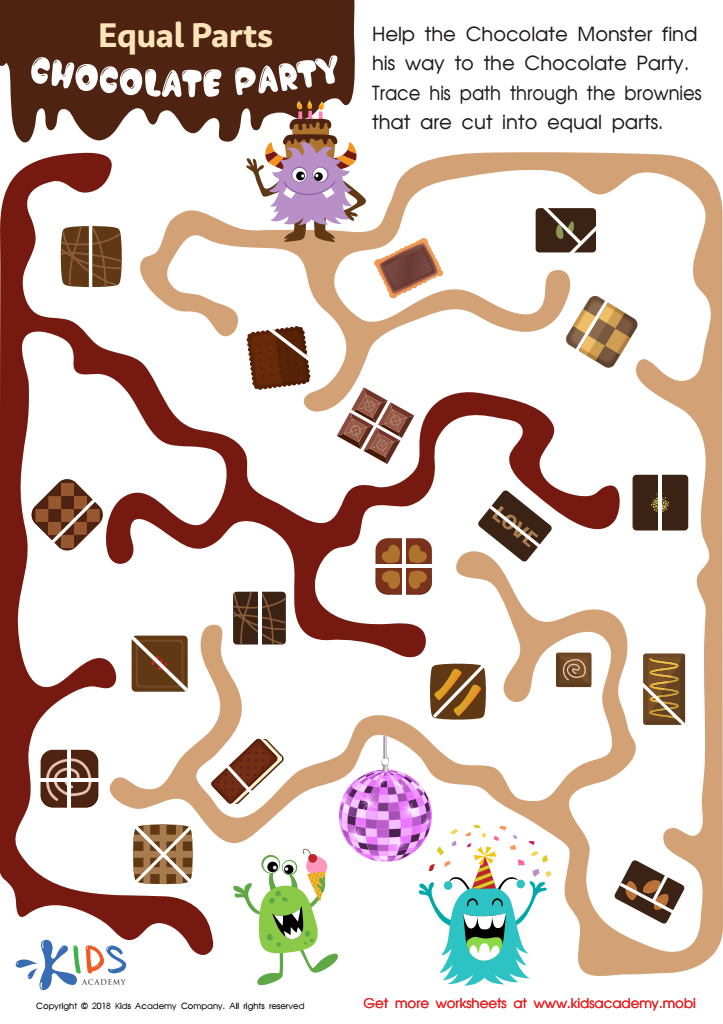

Equal Parts: Chocolate Party Worksheet
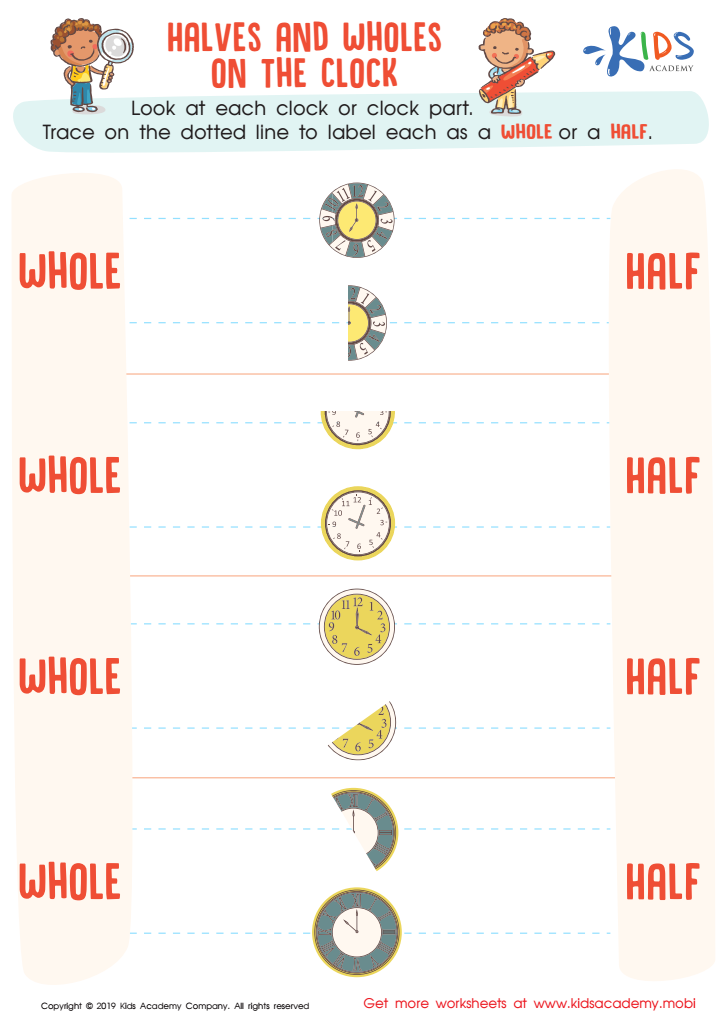

Halves and Wholes on the Clock Worksheet
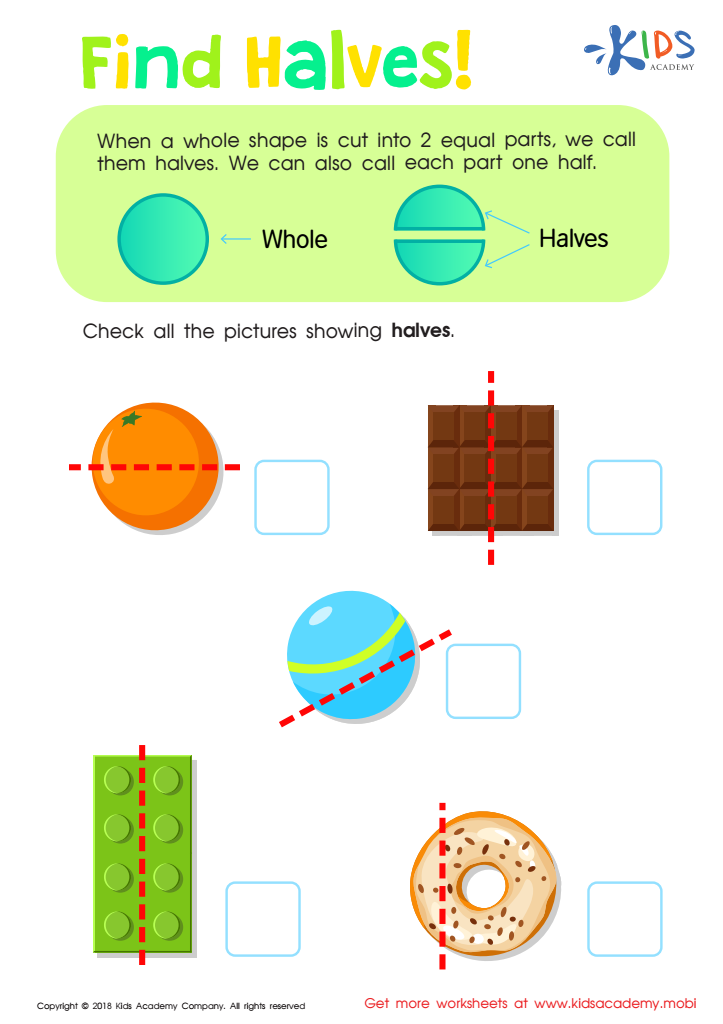

Find Halves Worksheet
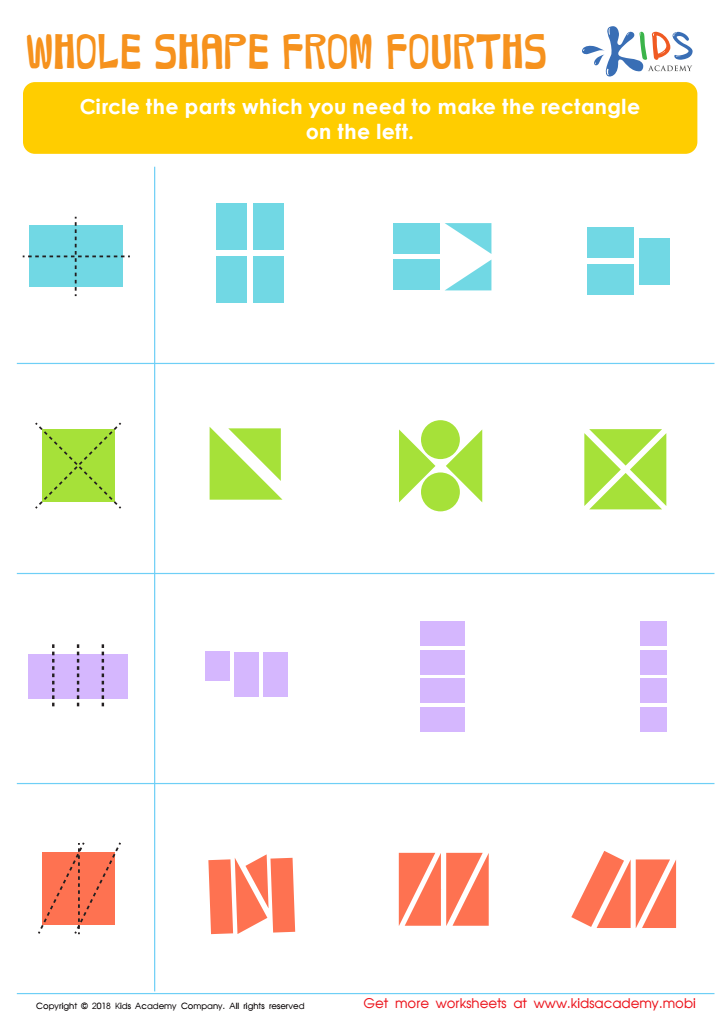

Whole Shape from Fourths Worksheet
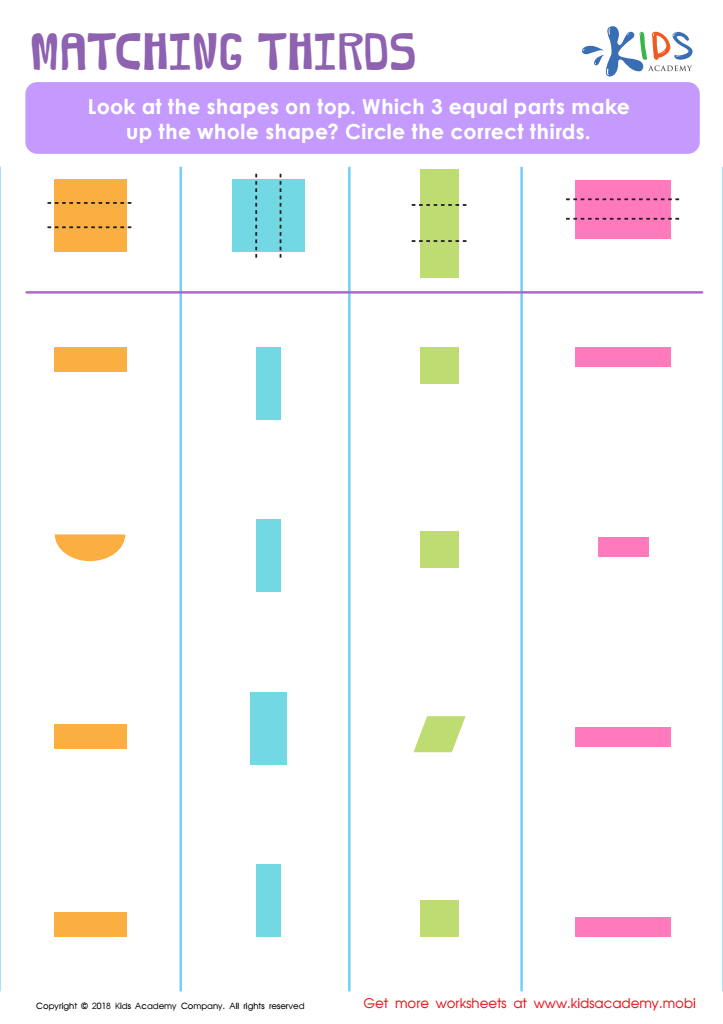

Matching Thirds Worksheet
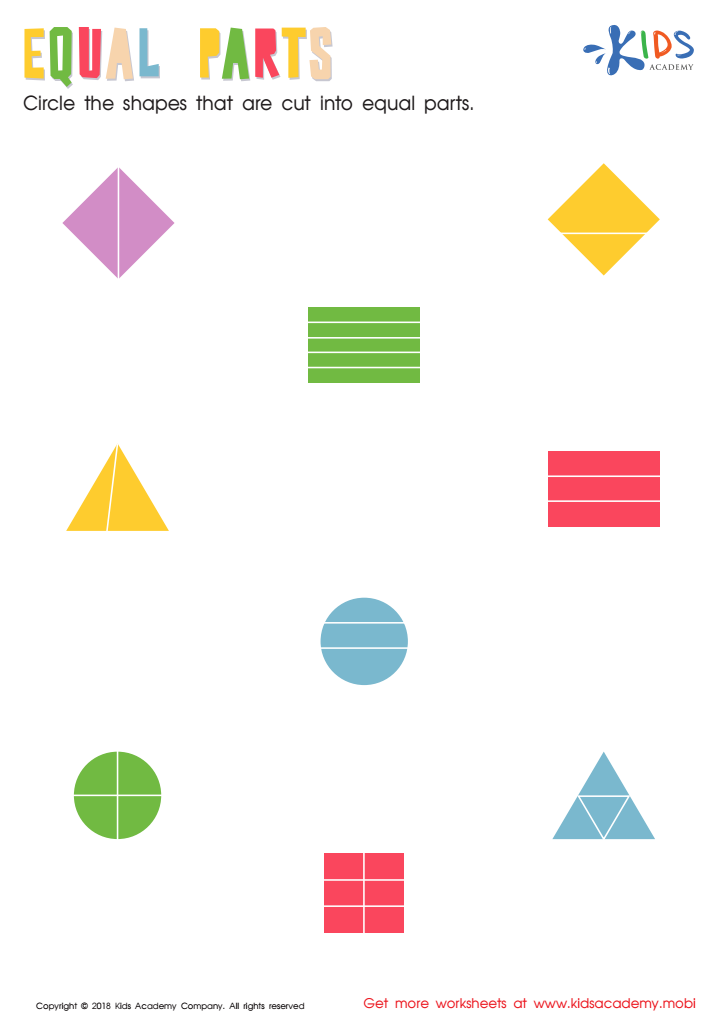

Equal Parts: Shapes Worksheet
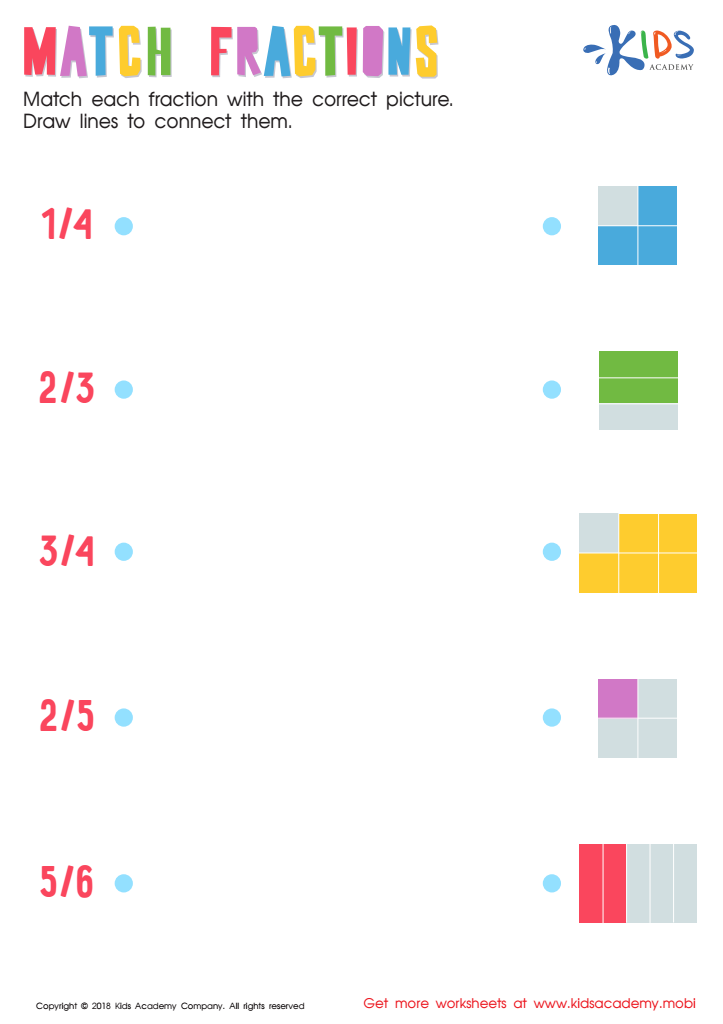

Match Fractions Worksheet
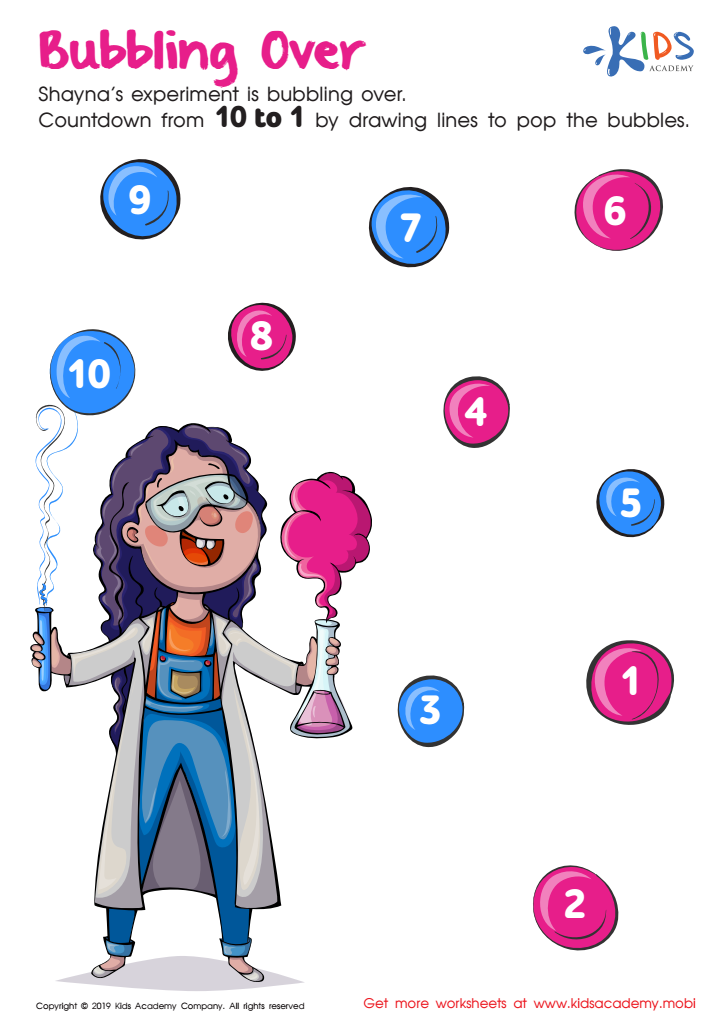

Bubbling Over Worksheet
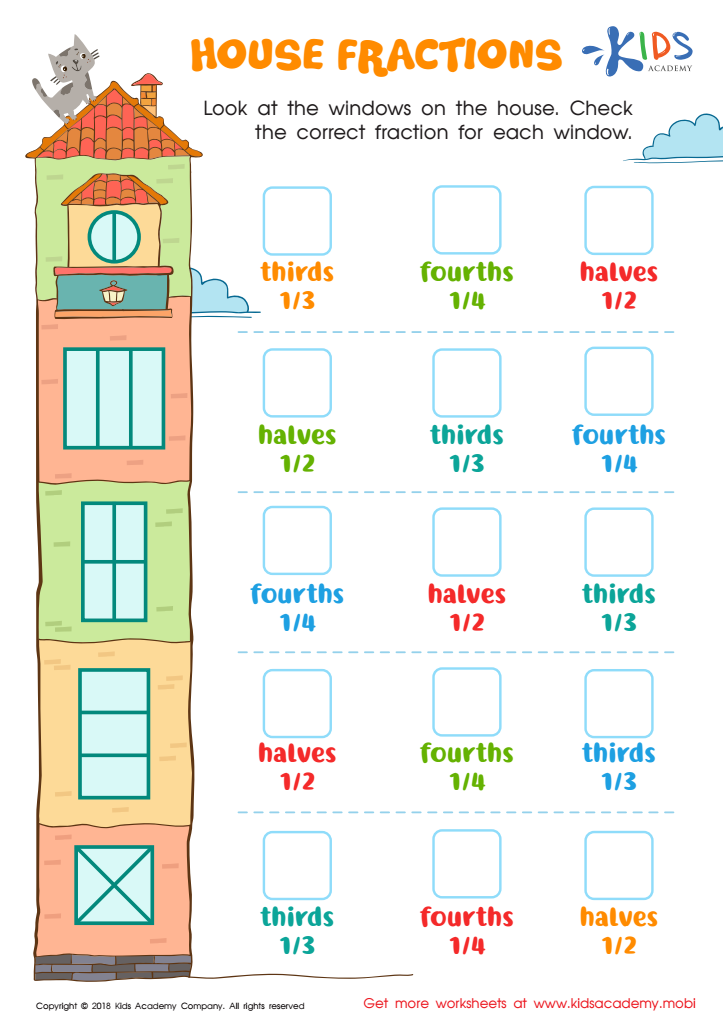

House Fractions Worksheet
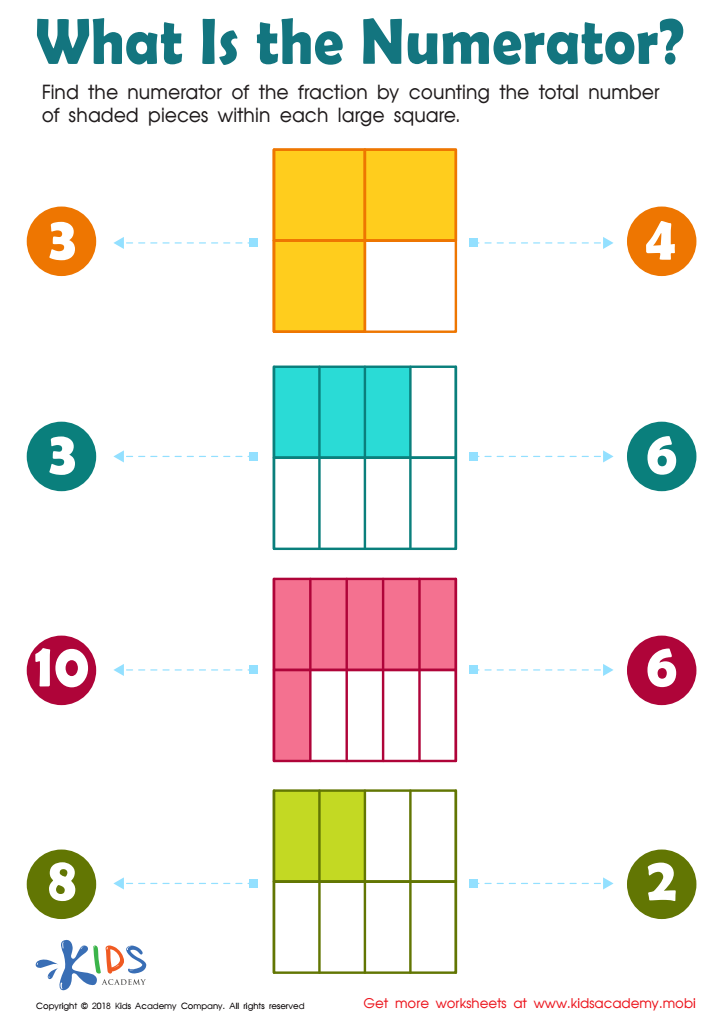

What Is the Numerator? Worksheet
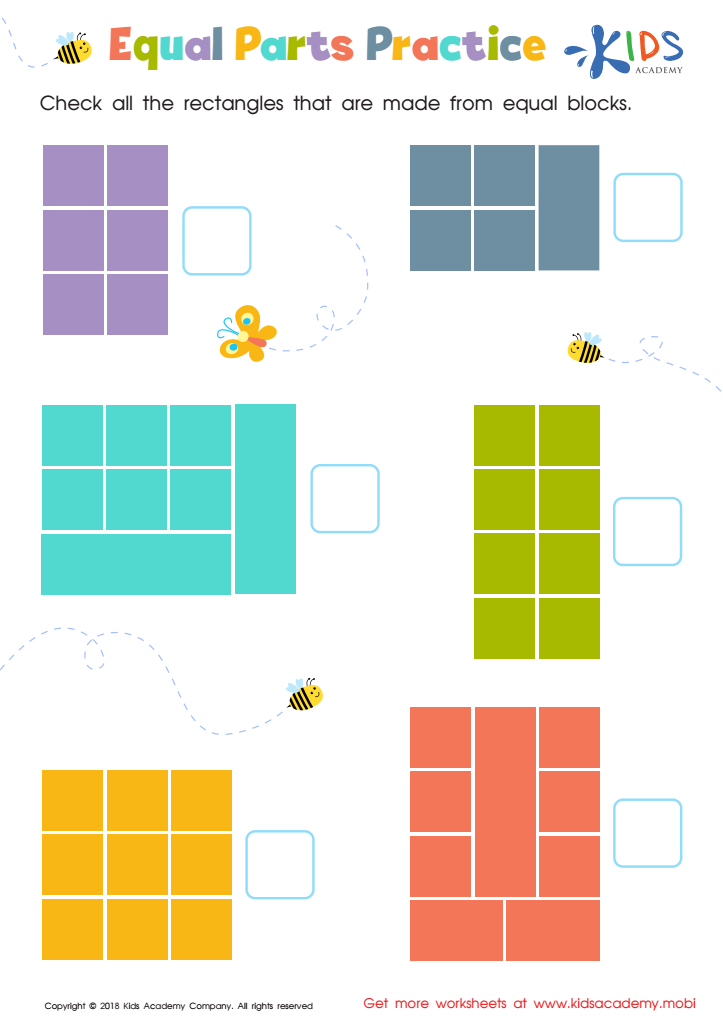

Equal Parts Practice Worksheet
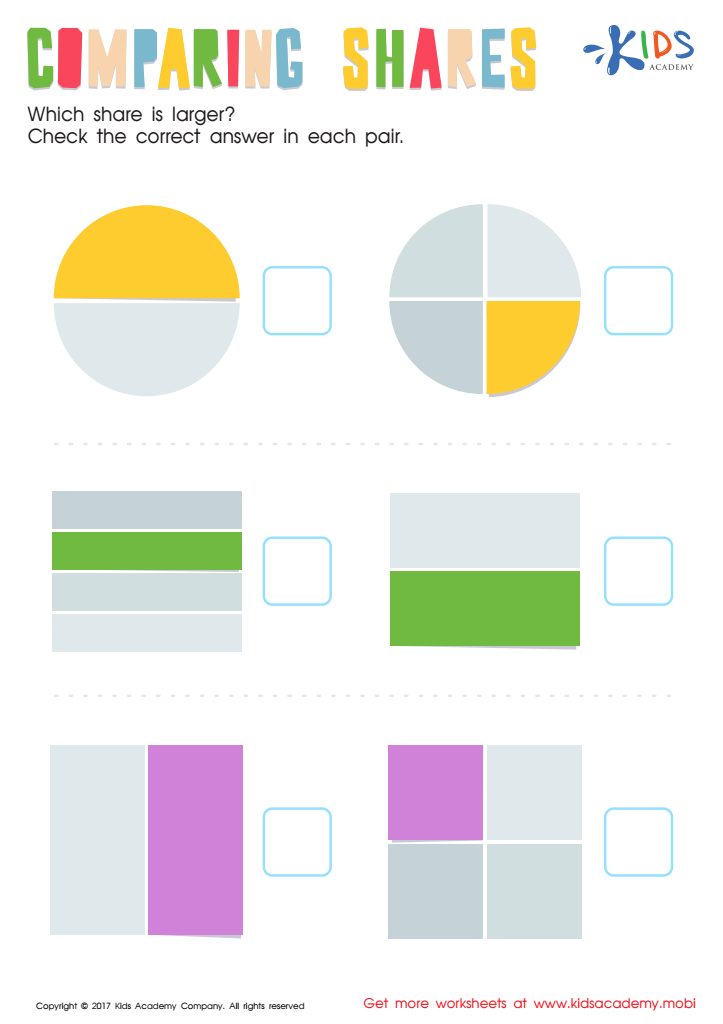

Comparing Shares Worksheet
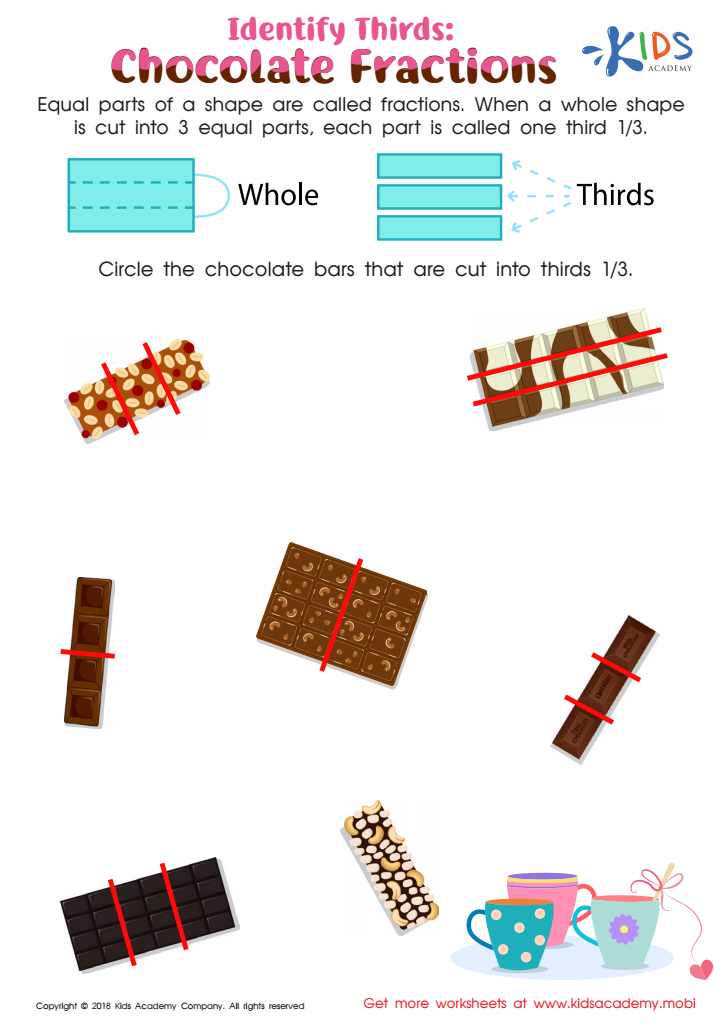

Identify Thirds: Chocolate Fractions Worksheet
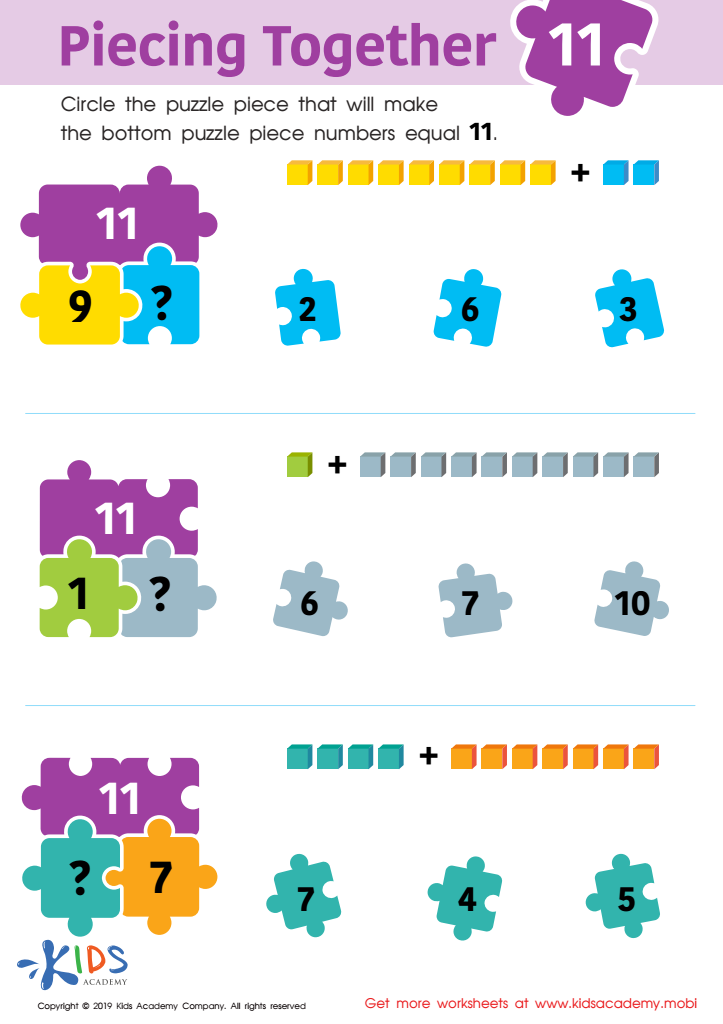

Piecing Together 11 Worksheet
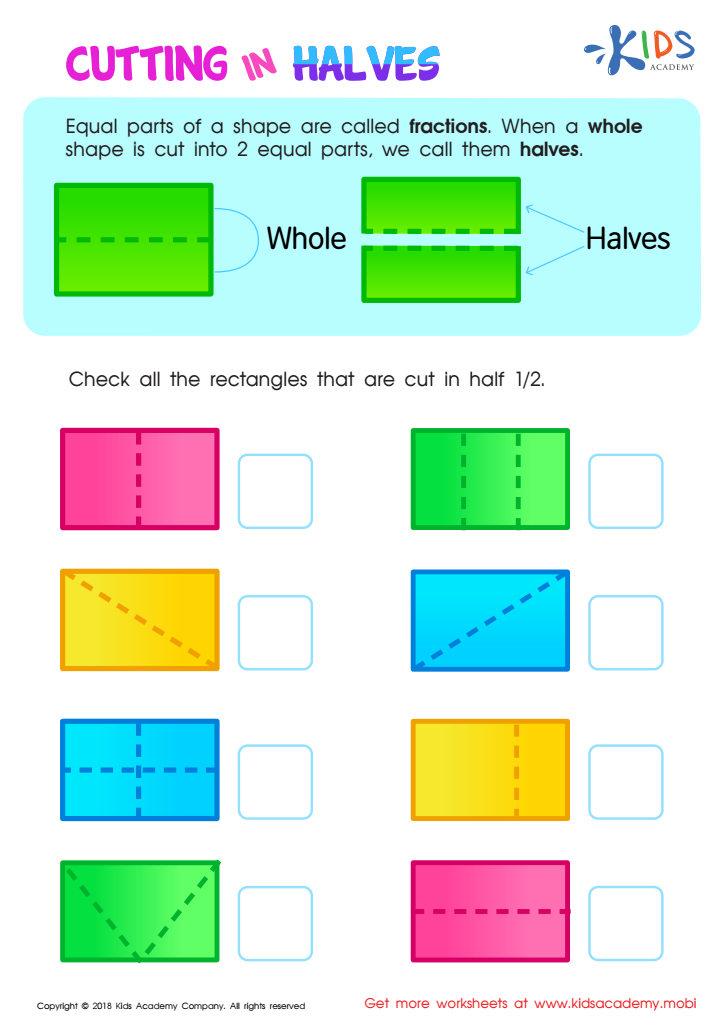

Cutting in Halves Worksheet
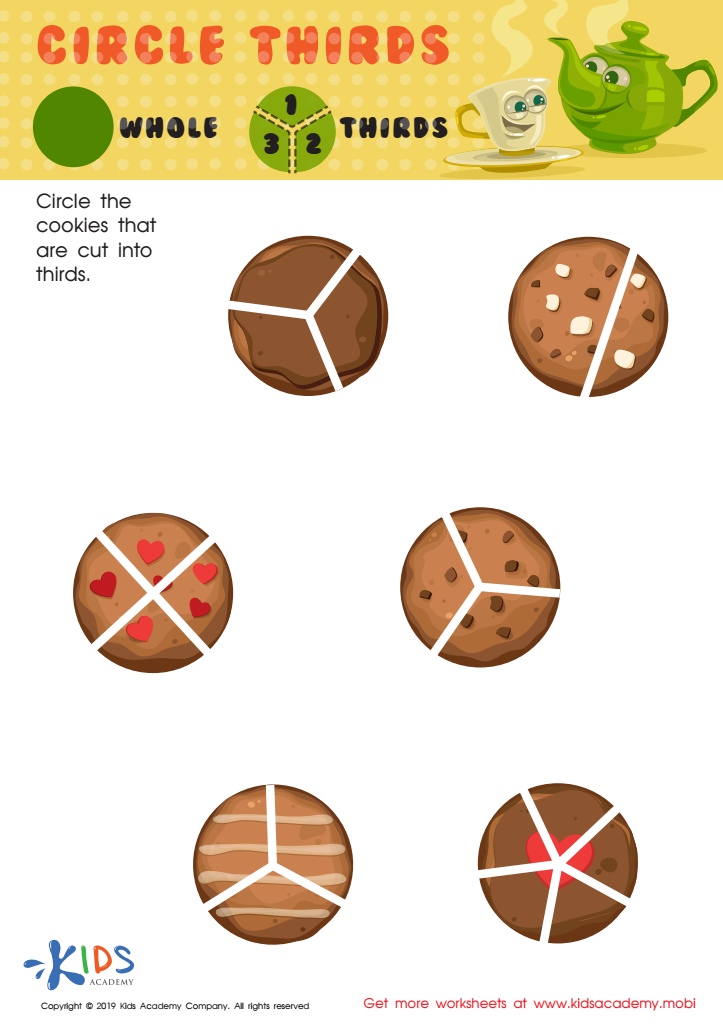

Circle Thirds Worksheet
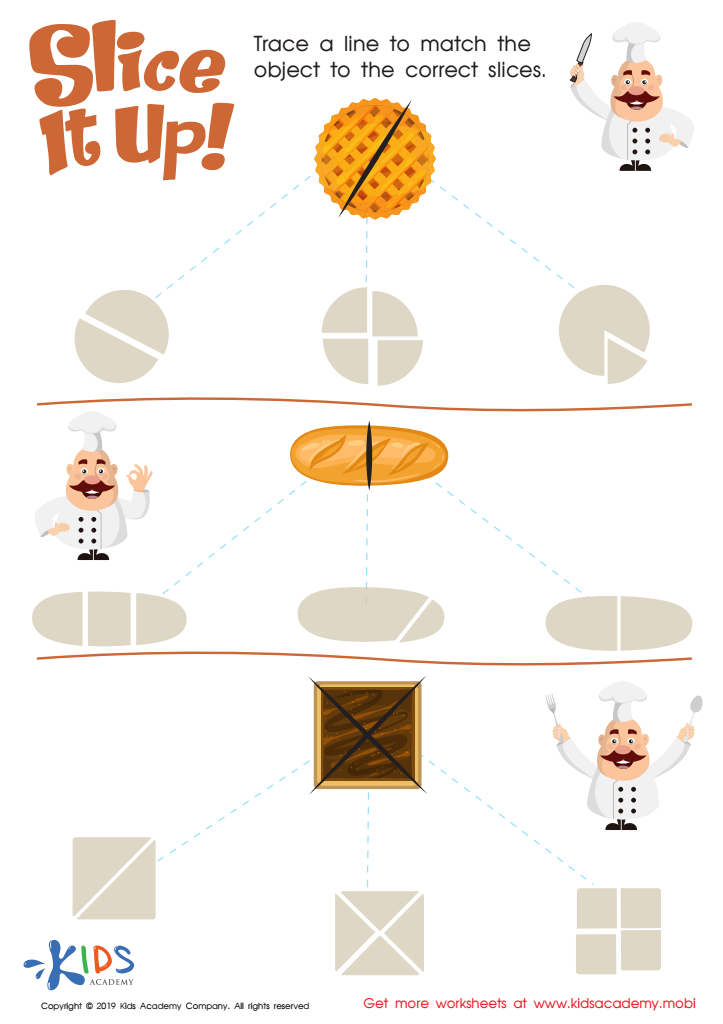

Slice It Up Worksheet
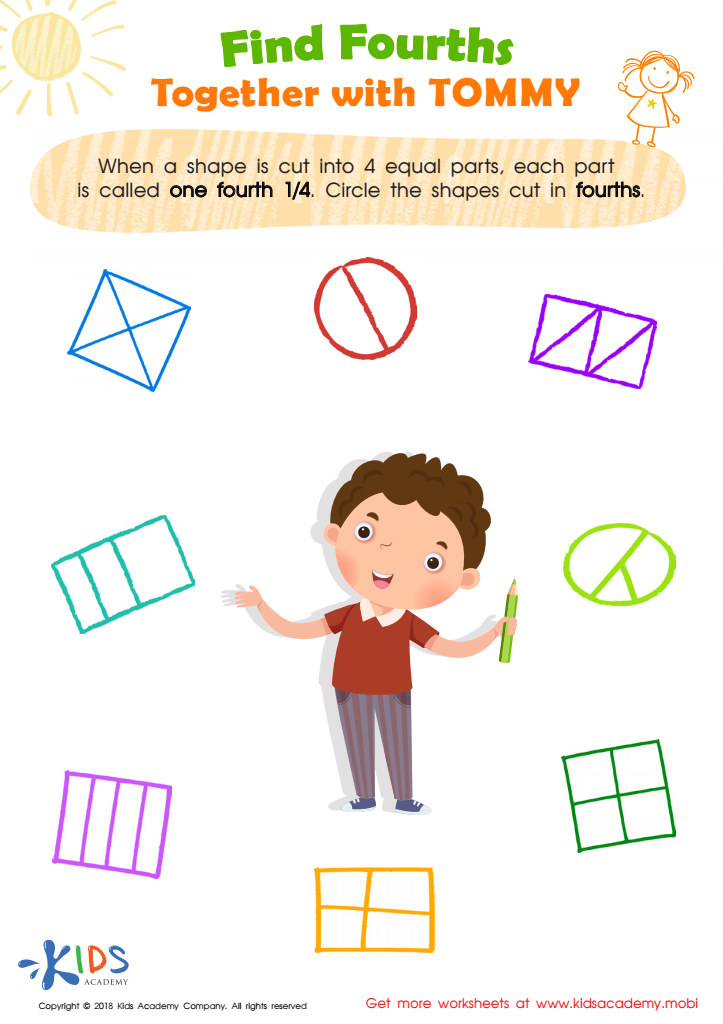

Find Fourths Together with Tommy Worksheet
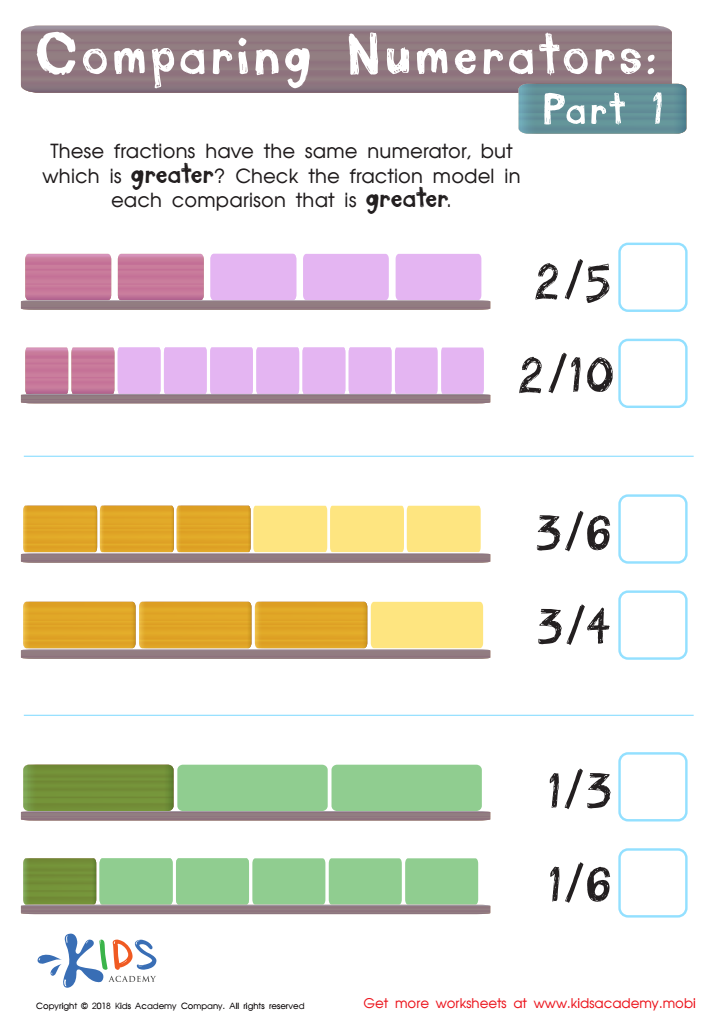

Comparing Numerators Part 1 Worksheet
Understanding fractions is a fundamental aspect of early math education and is critical for children aged 6-8. During these years, developing a strong math foundation is essential, as it sets the stage for future learning. Fractions, in their simplest forms, introduce children to the concept of parts of a whole, which is paramount for their everyday reasoning and mathematical problem-solving.
Parents and teachers should care about simplifying the concept of fractions because it boosts a child's confidence in tackling more advanced math topics later on, like decimal notation, ratios, and percentages. Fractions also bridge the gap between whole numbers and different types of numbers, laying the groundwork for algebra and geometry.
A solid grasp of fractions enhances everyday practical skills. Children frequently encounter fractions in daily activities such as cooking measurements, telling time, and sharing objects. Understanding these can make learning more relevant and engaging.
Moreover, conceptualizing fractions promotes critical thinking and analytical skills. When children learn to break down whole items into parts, they develop a keener ability to solve problems piece by piece, a skill valuable across various academic disciplines.
Ultimately, making fractions easy to grasp doesn’t just benefit their academic journey; it embeds essential life skills that support logical thinking, precision, and the fair division of resources.
 Assign to My Students
Assign to My Students


















